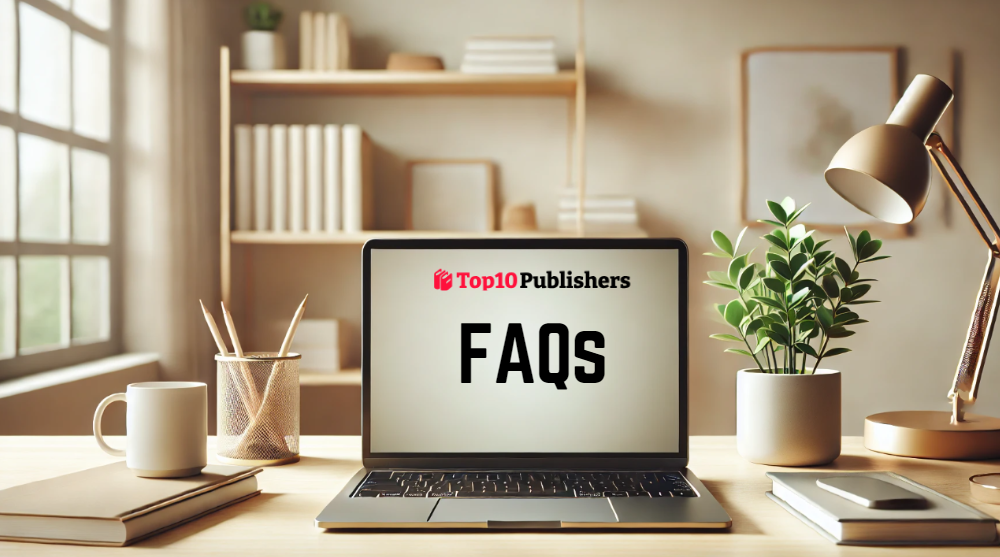- Eliza Randall
- 0 min read
In-Depth Review of Merriam-Webster’s Traditional Publishing Services
Table of Contents
Merriam-Webster, a trusted authority in the world of dictionaries and language resources, is not only known for its comprehensive reference works but also for publishing a range of educational and specialized books. This article delves into Merriam-Webster’s publishing efforts beyond dictionaries, exploring the types of books they publish, the authors they cater to, and the services they provide.
| ✅ PROS | ⛔ CONS |
| Highly Reputable Brand Focus on Quality Extensive Distribution Network Specialized Niche | Limited Scope for Genres Selective Submission Process Minimal Marketing Support Not Open Submissions |
✅ Pros of Merriam-Webster
- Highly Reputable Brand: Publishing with Merriam-Webster associates your work with a trusted authority in language resources, adding credibility to your content.
- Focus on Quality: Rigorous editorial standards ensure that all publications are thoroughly vetted for accuracy, making it ideal for educational content.
- Extensive Distribution Network: Access to major online retailers, academic bookstores, and libraries increases the reach of your work.
- Specialized Niche: Ideal for authors in linguistics, education, and language studies, with an audience already engaged in these fields.
⛔ Cons of Merriam-Webster
- Limited Scope for Genres: Focuses primarily on non-fiction, educational, and language-related content, making it less suitable for fiction or creative writing.
- Selective Submission Process: Works mainly with established authors and experts, making it challenging for new or self-published writers to break in.
- Minimal Marketing Support: While they offer strong distribution, marketing support for niche publications is limited, requiring authors to promote their own work.
- No Open Submissions: Submissions are often by invitation or through agents, limiting opportunities for unsolicited manuscripts.
Overview of Merriam-Webster’s Traditional Publishing
Founded in 1831, Merriam-Webster is renowned for its authoritative dictionaries and thesauruses. Beyond its flagship publications, the company specializes in educational and language-related books, supporting students, teachers, writers, and lifelong learners.
Key Focus Areas:
- Language Reference Works: Comprehensive dictionaries (e.g., medical, legal) and thesauruses.
- Educational Guides: Grammar handbooks, vocabulary builders, and test prep resources.
- Word Games & Puzzles: Crossword dictionaries and word trivia books for language enthusiasts.
- Etymology & Language History: Engaging books on word origins and language evolution.
Merriam-Webster’s traditional publishing arm is tailored to authors dedicated to educational and informative content. If you’re an expert in language, education, or a related field, collaborating with Merriam-Webster provides an opportunity to reach a wide audience while leveraging the reputation of a well-respected brand.
As a traditional publisher, Merriam-Webster upholds strict editorial standards, working primarily with established experts in linguistics, education, and related fields. They are highly selective in the manuscripts they accept, often only partnering with authors by invitation or through literary agents. Unlike self-publishing platforms, Merriam-Webster does not accept unsolicited submissions. This commitment to quality solidifies their reputation as a trusted source for educational and reference materials.
Types of Books Merriam-Webster Publishes
Merriam-Webster publishes a diverse range of books beyond its iconic dictionaries, focusing on language, education, and word-related content. Their language reference books include comprehensive dictionaries and thesauruses, such as the Medical Dictionary, Legal Dictionary, and the Collegiate Dictionary, along with grammar and usage guides that help readers master proper punctuation and language conventions. In the realm of educational resources, Merriam-Webster offers vocabulary-building tools like Merriam-Webster’s Vocabulary Builder and puzzle books such as the Crossword Puzzle Dictionary. For those interested in general knowledge and trivia, the publisher produces engaging titles on language trivia, word origins, and etymology, including popular reads like The Merriam-Webster Book of Word Histories.
9.5
7.0
Publishing Process & Timeline
Merriam-Webster is highly selective in its publishing process, usually working with established experts in language and education. The timeline for publishing a book with them can vary significantly based on the complexity of the project and the level of research involved. Typically, projects focused on educational content, language guides, or specialized dictionaries can take 6 to 12 months from manuscript submission to publication.
Cost of Publishing with Merriam-Webster
Merriam-Webster operates on a traditional publishing model, which means authors do not pay upfront fees to have their work published. Instead, the company covers the costs of editing, design, production, and distribution. In exchange, they take a portion of the book’s sales revenue to cover these expenses and generate profit. As a traditional publisher, Merriam-Webster typically handles all aspects of the publishing process, including marketing support, although this may be limited for niche or specialized titles.
However, it’s important to note that Merriam-Webster is highly selective and generally only works with established experts and authors in language and education fields. This means that securing a publishing deal with them is not an option available to everyone, especially for first-time or self-published authors. Authors who are accepted do not bear any direct costs but must be prepared for a rigorous submission and editorial process.
Distribution & Availability
Merriam-Webster’s books are distributed widely, ensuring they reach a broad audience through multiple channels. Their publications are readily available through major online retailers like Amazon, Barnes & Noble, and Books-A-Million, making it easy for readers to purchase both physical and digital copies. Additionally, Merriam-Webster has strong distribution ties with brick-and-mortar bookstores, including academic bookstores, libraries, and specialty shops, which helps their educational resources reach students, educators, and language enthusiasts. Many of their titles are also available in digital formats, allowing readers to access eBooks on various platforms for convenient, on-the-go learning.
9.5
7.0
Is Publishing with Merriam-Webster Right for You?
Choosing to publish with Merriam-Webster is ideal if you are an expert in linguistics, education, or language-related fields with a manuscript that aligns with their specialized focus. Authors who are passionate about producing educational content, grammar guides, or language reference materials will benefit from the credibility and prestige of being associated with one of the most respected names in publishing. This can be especially valuable if your goal is to reach an audience that values authoritative and well-researched resources.
However, if your manuscript leans toward fiction, creative non-fiction, or topics outside the realm of language and education, Merriam-Webster may not be the best fit. In such cases, exploring other publishers with a broader focus might be more suitable to ensure your work reaches its intended audience.

Frequently Asked Questions
Q: Can new authors publish with Merriam-Webster?
Merriam-Webster typically works with established experts in language and education fields, so it may not be the best option for new or self-published authors.
Q: What types of manuscripts does Merriam-Webster accept?
They focus on non-fiction, particularly in the areas of dictionaries, language guides, vocabulary-building, and educational resources.
Q: Does Merriam-Webster offer marketing support for its authors?
While they provide some marketing support, authors are encouraged to actively promote their own work, especially if it caters to a niche audience.
Q: Is there a fee to publish with Merriam-Webster?
Merriam-Webster operates on a traditional publishing model, so authors are not charged fees. However, they are selective about the manuscripts they accept.
Q: How can I submit my manuscript to Merriam-Webster?
Submissions are generally by invitation or through agents, as they do not have an open submissions policy for unsolicited manuscripts.
9.5
7.0
